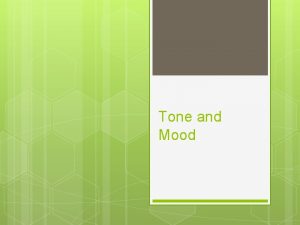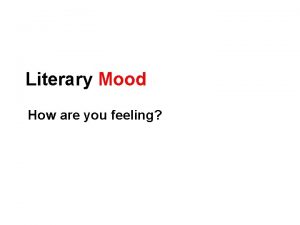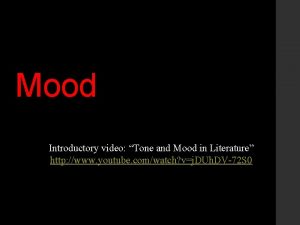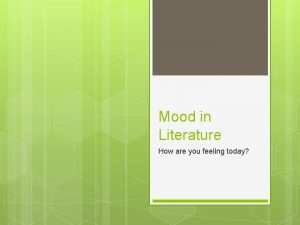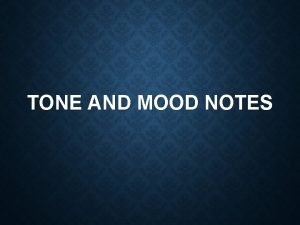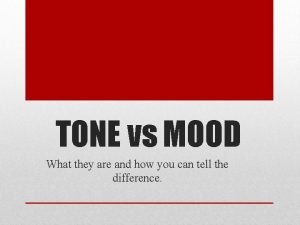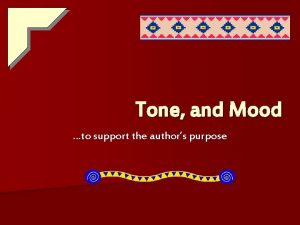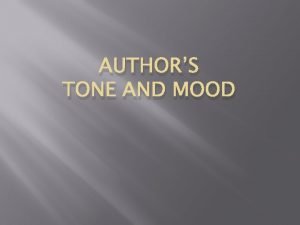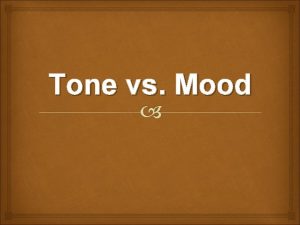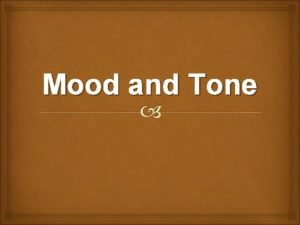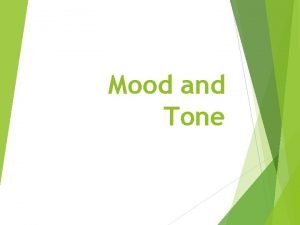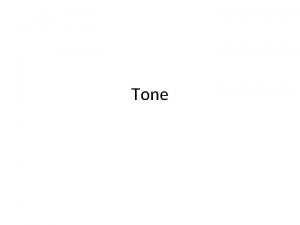Mood Introductory video Tone and Mood in Literature









- Slides: 9

Mood Introductory video: “Tone and Mood in Literature” http: //www. youtube. com/watch? v=j. DUh. DV-72 S 0

Why Mood Matters Mood is an important literary element because it influences the way readers feel about what they are reading. Mood can draw a reader into a story and can compel a reader to continue to read.

Mood Definition: The feeling or impression the author creates with his writing Also refers to the feelings the reader has about the characters or setting in a story

Identifying mood, in general Mood can be identified by analyzing: – The setting of a story – The character’s actions and dialogue

Identifying Mood through Analyzing Setting Writers often select/create a setting that will impart the mood they wish to instill in their readers Writers will use a variety of imagery devices to vividly describe the setting so that readers can picture in their minds how the setting looks, smells, sounds, etc. : sensory details!

Identifying Mood through Character’s Words & Actions Readers need to recognize/analyze the following: Situation in which the character is involved Character’s reactions to the situation Character’s reactions to other characters Character’s body language Character’s tone of voice What the characters say to and about others The character’s thoughts and emotions

Words to Describe Mood Just about any word that can describe an emotion can describe the mood in a story. The following list is just some examples: Cheerful Tense Terror Melancholy Humorous Dark Apprehensive Romantic Peaceful Scary Ominous Lonely Light suspenseful Anxious Sad Dreary Violent Mysterious Exciting Calm Cold Angry Fearful

Steps to Identifying Mood Identify the situation—what is the character doing? Find the key words and phrases that show the character’s reactions to the situation Ask yourself: What mood is shown by the character’s reactions?

Closing Video “Mood in Literature” http: //www. youtube. com/watch? v=IIt. Gdq. Apj. Q&feature=related
